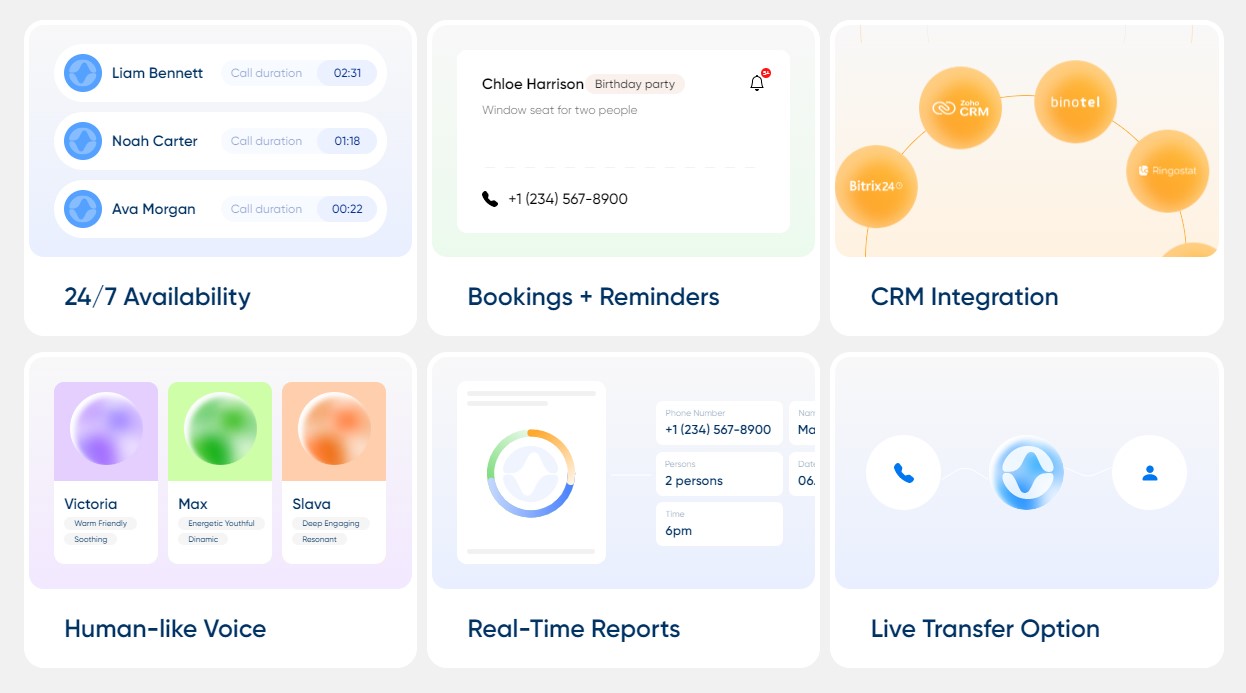Ukrainian AI startup HAPP, which automates inbound calls in companies, received funding at the MVP development stage from a private business angel in the amount of $50,000. This funding allowed the team to create a stable version of the product, test it in real conditions, and confirm the hypothesis: voice AI has steady demand in the B2B segment.
HAPP AI is a voice assistant that handles up to 87% of inbound calls. It books, consults, integrates with CRM and PMS systems, and works 24/7 without breaks. The idea was born from the team’s own experience in the service business: routine communication took too much effort and lowered service quality. HAPP focuses on practical benefits — reducing the workload on staff and increasing the profitability of service companies.
The startup solves one of the most painful problems of the service business — manager burnout and loss of profit due to missed calls. The HAPP team has already launched a demo version for clients so businesses can see for themselves how it works.
“We developed HAPP quietly but very purposefully. And now — it’s time to speak out loud. Businesses can no longer afford to lose clients because of calls that no one answered. We help change that — and we are grateful to investors who believed in this,” said Vyacheslav Saloid, CEO and co-founder of HAPP.
The first clients of the service were restaurants, hotels, beauty salons, online schools, and delivery services. HAPP already processes thousands of calls monthly and is preparing for integration into networks with many locations.

Currently, the team is opening a pre-seed round of $350–500K to create an autonomous voice infrastructure. HAPP plans to abandon external providers (such as OpenAI or ElevenLabs) and deploy its own LLM, TTS, and STT models on local servers. This will provide greater security, customization, and technological independence for both the startup and its clients.
“We want to abandon external providers (OpenAI, ElevenLabs) and instead deploy our own LLM, TTS, and STT models on local servers. This opens opportunities for greater security, customization, and independence for us and for clients,” the startup said.





















